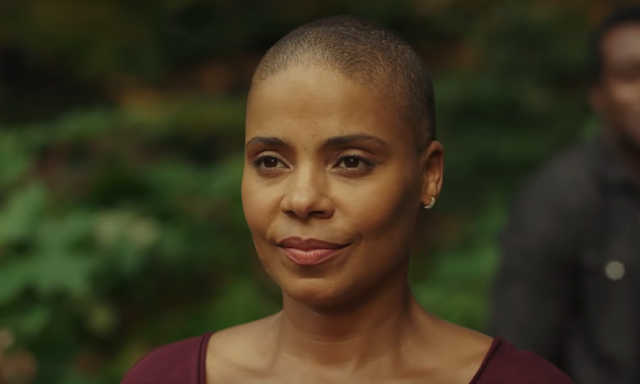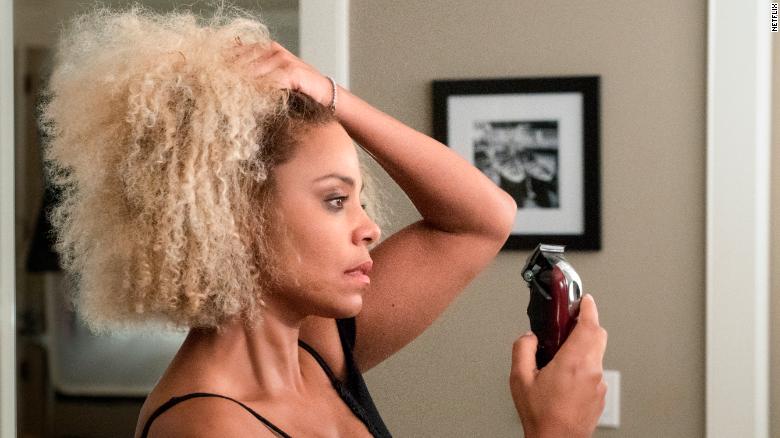Nappily Ever After - Review
Netflix makes it so I watch movies I wouldn't ordinarily see. Nappily Ever After is one of those movies. It is a movie not made for me, but its message is universal. You define you. Don't let society and the perception of you define you. While that theme wasn't explored as deep as it should have, it still gets the point across.
Sanaa Lathan plays Violet, the main character. She sums up the entire movie in one quote to Daria Johns, who plays Zoe.
"Zoe, don't ever let someone's negative opinion of you become your reality."
The problem is, Violet doesn't follow her own advice. Everyone is like that in a way, easier to give advice to others, than follow it yourself. Violet's mother was very strict about appearances. Violet inherited that, and would spend hours making herself look as she thought society needed her to look.
She works for an ad agency, which is a bit on the nose, since Violet is selling perceptions. Then her Dad (played by the legendary Ernie Hudson) becomes a male model. Oddly enough, Violet's mother leaves her father because of his foray into this profession.
During this journey, Violet is stuck in something of a love triangle, the man who is perfect for the perception she wants to put out there, and the man who is perfect for challenging every part of that. Right as you think Violet begins to understand her journey, she falls back into the pressure of society.
The biggest influence on her though, is Zoe. The daughter of Will (Lyriq Bent) causes her trouble at first, but then Violet learns from her carefree attitude.
It is good news that this was based off of a novel, because there is definitely more under the surface that was never explored. For a film that discusses inner-beauty, and the dangers of being vain, it is awfully shallow.
I recognize that I was not the target audience for this film. While I definitely think the message is a great one - and a universal one - the way it was presented felt forced throughout the movie.
The biggest problem with Nappily Ever After is that there are too many abandoned threads. They could have explored her creating the beer commercial at work more. They could have explored her parents relationship and the male model thing more. They could have shown how her friends perceive the new Violet more. But instead we get a bit of each, with no satisfying resolution to any of it.
There is another thread that could have made the film go to some interesting places. But it was presented, then quickly abandoned. After Violet and Clint break up, Violet sees him dating someone else. But we never see hide nor hair of her ever again. When Clint comes back into Violet's life, it's not even discussed. If you edit out that scene, the movie doesn't change all that much, and that is a bad thing. Film real estate is rare. Every frame should earn the right to be there. If it does nothing for the story, it should be cut.
Netflix is getting this reputation of collecting movies no one else wants, with a few exceptions. (Mudbound is stunning, and the upcoming Hold The Dark looks the same way). There is a strong movie here, but it gets lost somewhere between the page and the screen.
The ending is satisfying enough, Violet is finally doing what she wants to do, with no regard to what others will think. Hair doesn't define Violet, her kind spirit defines her.
Nappily Ever After has a great opening scene, but the highlight is when Violet actually shaves her head. There are very few cuts, (no pun intended) and you can tell she did it for real on screen. It is the defining moment of the flick, and is the reason that it will stick in people's heads in the future.
The only reason I want to go to bat for this movie is because I love the lesson that it tries to get across. "[D]on't ever let someone's negative opinion of you become your reality." You won't please everyone. Be true to yourself, love what you love. Laugh hard, be kind, don't just survive, LIVE!
Nappily Ever After is now streaming exclusively on Netflix.





Comments
Post a Comment